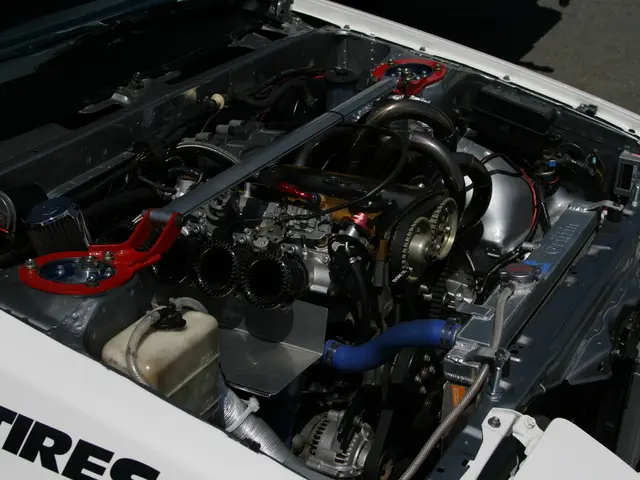Skills Needed for Future Autonomous Vehicle Experts
Scootin' Down the Autonomous Avenue: Becoming a Skilled Autonomous Vehicle Technician
Self-driving cars, aka autonomous vehicles (AVs), are shaping the future of transport, and the demand for pros who can fix and maintain these high-tech marvels is on the rise. Let's dive into the skills, education, and certifications needed for an aspiring autonomous vehicle technician.
What's the Scoop on AVs?AVs utilize sensors, cameras, radar, and AI to navigate without human input. The technology behind AVs encompasses machine learning, AI, and intricate sensor systems. As these vehicles become more prevalent, the need for skilled technicians to manage and maintain them is skyrocketing.
The AV Technician's RoleAn autonomous vehicle technician plays a crucial role in developing and maintaining self-driving cars. Responsibilities range from keeping all technological systems functioning smoothly to troubleshooting, diagnosing issues, and performing maintenance to ensure safety, efficiency, and performance.
Got the Skills to Pay the Bills?
A. Nuts and Bolts of Vehicle Systems
- Fundamentals of Traditional Vehicle Systems: A strong foundation in engines, brakes, and electrical components is essential. Although AVs rely heavily on technology, understanding the basic vehicle mechanics is essential.
- AV Components: From LIDAR to radar sensors and GPS, a technician should be intimately familiar with these specialized components and know how they work together to ensure smooth operations.
- Mastering Diagnostic Tools: Technicians must be well-versed in advanced diagnostic tools that analyze the health of AV systems, detect faults, and aid in repairs.
B. Robotics and AI Know-How
- Robotics Fundamentals: Understanding robotic systems that enable AV navigation is essential, as it helps with troubleshooting navigation and movement-related issues.
- AI and Machine Learning Integration: AVs employ AI algorithms to process real-time data and make decisions. Technicians must understand these systems to diagnose problems and ensure they run smoothly.
C. Software and Programming
- Basic Coding and Algorithms: Familiarity with programming languages like Python, C++, and the specialized coding used in AV systems is becoming increasingly necessary.
- AV Software Platforms: Platforms like ROS (Robot Operating System) are vital for AV development. Technicians should be familiar with these platforms to support maintenance and upgrades.
D. Interpreting Data and Analytics
- Real-Time Data Analysis: AVs generate massive amounts of data. A technician must be able to interpret this data for accurate system functioning.
- Simulation Software: Simulating AV systems in virtual environments before implementation in real-world scenarios is crucial for testing performance and safety.
E. Troubleshooting Mastery
- Sensor Failure Diagnosis: Sensors are crucial for AVs, and technicians should be adept at diagnosing and repairing sensor malfunctions.
- Critical Thinking and Decision Making: Technicians must think critically and decisively to tackle unexpected hurdles AV systems may present.
Specialized Knowledge
A. Autonomous Driving Laws and Ethics
- Legal Knowledge: Understanding regulations for AVs at both local and international levels is essential, ensuring safe, legal vehicle operations.
- Ethical Considerations: Ethical aspects like decision-making in unavoidable accidents are becoming increasingly relevant. Technicians must contribute to ethical discussions regarding AVs.
B. Lock It Down: Cybersecurity Know-how
- Securing AV Networks: Ensuring the security of AVs (highly interconnected systems) against cyberattacks is a vital part of a technician's role.
- Data Privacy: AVs collect a lot of personal and travel data, and technicians must guarantee that this information is handled properly and protected.
Education and Certifications
A. Necessary Qualifications
- Formal Education: Many AV technicians come from backgrounds in automotive technology, robotics, or computer science. A relevant degree lays a solid foundation for future technical work.
- Certifications and Training: Earning certifications like ASE (Automotive Service Excellence) or AV-specific qualifications can give technicians an advantage in a competitive job market.
B. Lifelong Learning and Industry Trends
- Staying Ahead of the Tech Curve: With rapid advancements in the AV industry, constant learning is essential. Attending workshops, online courses, and industry conferences helps professionals stay updated.
Career Opportunities
A. Job Market Outlook
- In-Demand Technicians: As AVs become common, the need for skilled AV technicians continues to grow. The increasing demand makes it a stable and rewarding career.
- Career Advancement: Technicians can advance their careers into roles such as system engineers, project managers, or technical consultants in the AV industry.
B. Challenges and Opportunities
- Adapting to Rapid Technological Changes: The challenge lies in staying up-to-date with rapidly evolving technologies and adapting to new systems.
- Endless Job Prospects: The AV field presents numerous opportunities for those willing to learn and grow, from job security to high earning potential.
- A well-rounded autonomous vehicle technician needs a solid understanding of both traditional vehicle systems as well as AV components, like LIDAR and radar sensors, to ensure smooth operations of these high-tech vehicles.
- In addition to a deep knowledge of robotics and AI, aspiring technicians must be proficient in programming languages such as Python, C++, and ROS, and familiar with AV software platforms to maintain and upgrade these complex systems.
- To excel in the field, technicians must be adept at interpreting vast amounts of data generated by AVs and simulating systems in virtual environments before real-world implementation, while also demonstrating expertise in sensor failure diagnosis, ethical considerations in autonomous driving, and cybersecurity to protect AV networks from potential threats.





